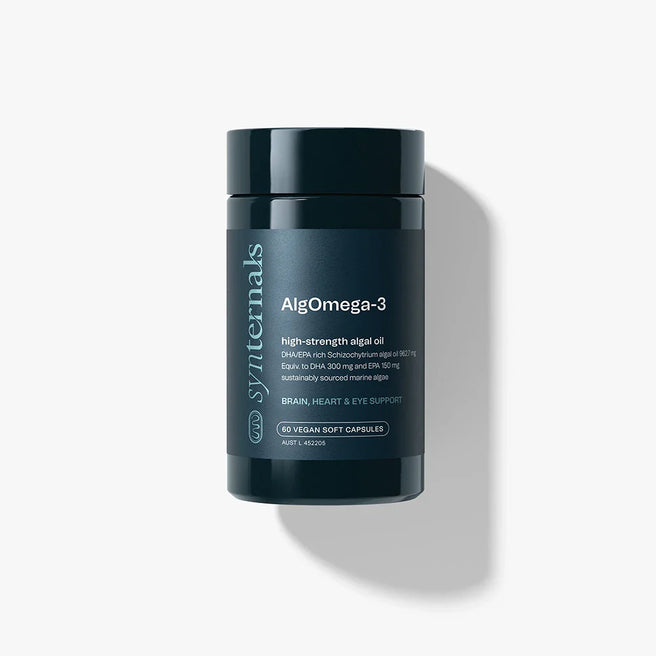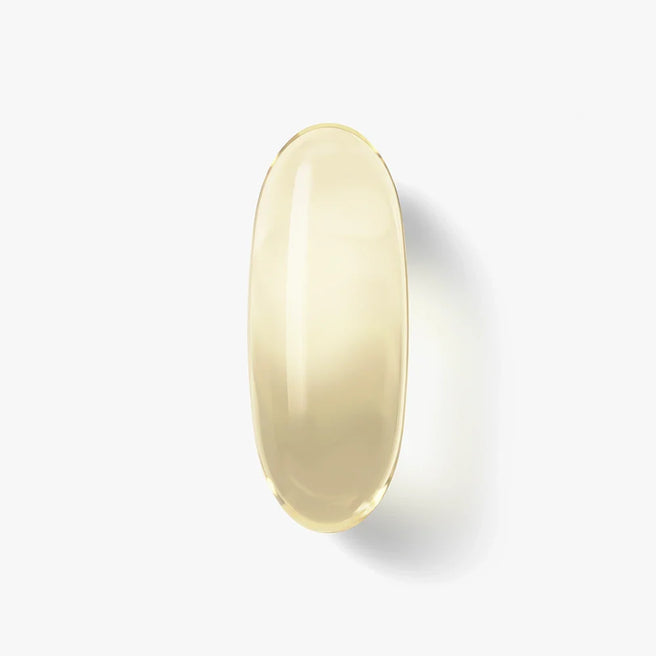Omega-3 fatty acids are essential for our health, supporting everything from brain and heart function to skin health, vision and reducing inflammation in the body. Traditionally, fish oil has been the go-to source for Omega-3, but there's a smarter, more ethical option: algae oil. In this article, we’ll explore the differences between algae oil versus fish oil, and explain why choosing algae oil is a superior solution.-v1737003765701.png)
What Makes Omega-3 Fatty Acids So Important?
Omega-3 fatty acids are vital for maintaining our health, but our bodies can’t produce them naturally. We rely on dietary sources to supply these essential nutrients, primarily:
- DHA (Docosahexaenoic Acid): Crucial for brain, eye, and cell membrane health.
- EPA (Eicosapentaenoic Acid): Known for its anti-inflammatory benefits and cardiovascular support.
Traditionally, these fatty acids have been sourced from fish, but contemporary research shows that the original source of DHA and EPA is microalgae, not fish. Fish acquire these nutrients by consuming algae, making algae oil a more efficient, direct and sustainable alternative.
Algae Oil vs. Fish Oil: A Clear Comparison
Algae oil and fish oil may seem similar on the surface, but they differ significantly in sustainability, purity, and usability. Here’s how they stack up:
| Algae Oil | Fish Oil | |
| Source | Micro-algae (direct, plant-like source) | Fish (secondary source) |
| Sustainability | Zero impact on marine ecosystems | Overfishing threatens ocean biodiversity |
| Purity | Free from mercury and heavy metals | May contain contaminants like mercury |
| Taste/Smell | No fishy aftertaste | Common fishy aftertaste |
| Dietary Suitability | Vegan and vegetarian-friendly | Not suitable for vegans |
| Potency | High levels of EPA and DHA per serving | Potency varies based on source and processing |
Why Algae Oil is the Future of Omega-3 Supplements
Sustainability at Its Core
Algae oil bypasses the need for fishing, protecting marine ecosystems and reducing overfishing. This makes it an environmentally friendly choice for those looking to reduce their impact on our planet.
Purity Without Compromise
Unlike fish oil, algae oil is free from harmful contaminants like mercury, lead, and other pollutants often found in marine life. This ensures a cleaner, safer Omega-3 supplement.
Enhanced Bioavailability
Algae oil is rich in DHA and EPA, providing the same health benefits as fish oil without inefficiencies. It’s especially effective for supporting:
- Brain health: Enhancing cognitive function and protecting neurons.
- Heart health: Reducing inflammation and supporting cardiovascular function.
- Skin health: Reducing inflammation, improving hydration, elasticity, and barrier function.
Why Choose AlgOmega-3?
For those looking to switch to a smarter Omega-3 solution, consider SynTernals AlgOmega-3. Sourced from pure marine algae, it delivers 300mg of EPA and 600mg of DHA per serving, benefitting:
- Brain and eye health
- Heart function
- Skin health, hydration and protection
Its triglyceride form, the most natural form available, ensures optimal absorption and bioavailability. This form Is less prone to oxidation compared to ethyl ester forms, preserving the algal oil's potency and stability. Its patented extraction process ensures purity and superior quality, while its eco-friendly sourcing makes it the more ethical choice.
Where to Find Algae Oil in Australia
For a premium algae oil supplement, explore SynTernals AlgOmega-3 or learn more about SynTernals’ commitment to sustainable wellness here.
Disclaimer: Please note that the information provided is for educational purposes only and should not be interpreted as medical advice. Always consult a healthcare professional for personalised recommendations regarding your health. If taking AlgOmega-3, Always read the label and follow directions for use.




-v1737069228452.png)

